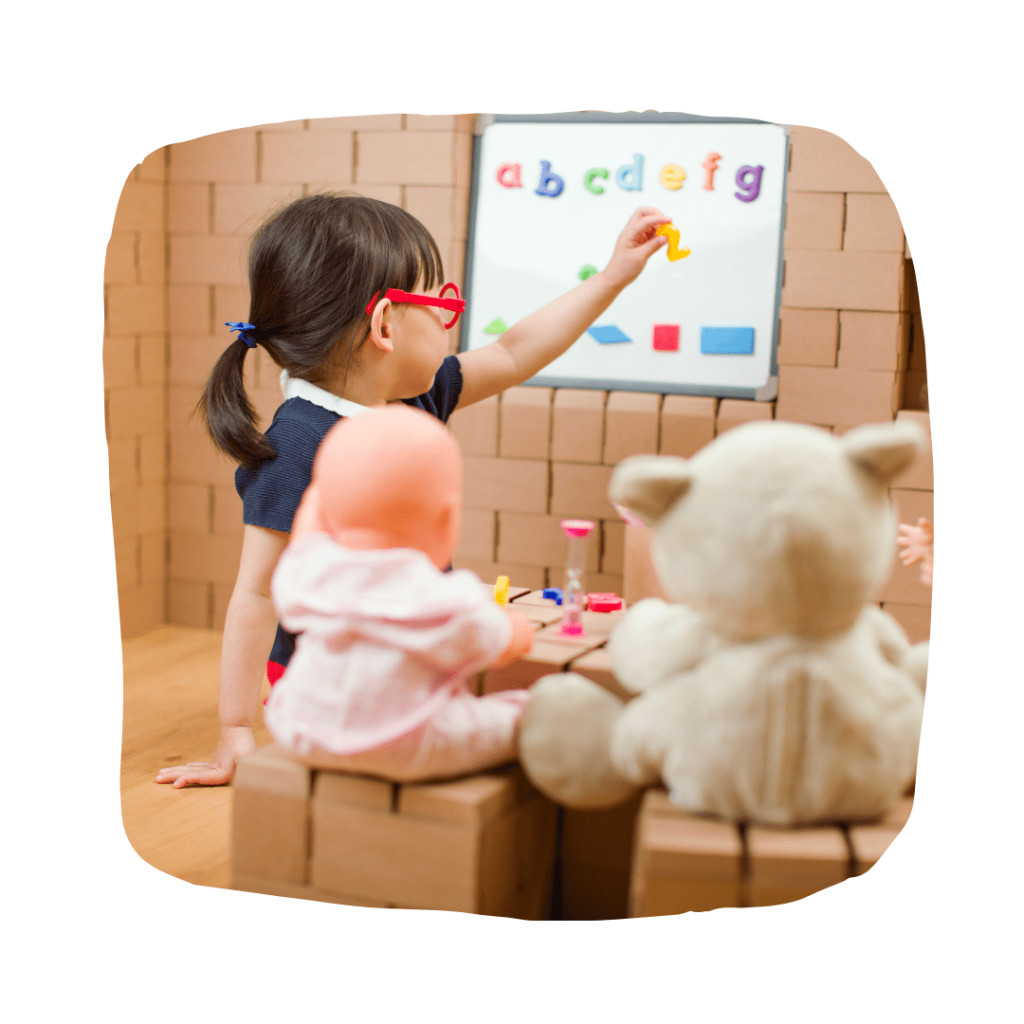Imaginative play has long been recognized as a crucial aspect of children’s development. Professor Sara Smilansky, a renowned researcher in the field, conducted studies that shed light on the profound impact of pretend play on cognitive and emotional development. In this article, we will explore the findings of Smilansky’s studies, the significance of pretend play for underprivileged children, and her suggestions for facilitating children’s development through imitative role play. Let’s dive into the world of imaginative play and its benefits!

Smilansky's Studies: Cognitive and Emotional Delays
Professor Sara Smilansky’s studies revealed that children who did not engage in imaginative play displayed cognitive and emotional delays compared to their peers. Pretend play, especially imitative role play, was found to be essential for a child’s overall development. These delays were particularly evident among underprivileged children, highlighting the significance of providing opportunities for imaginative play in disadvantaged communities.
Facilitating Pretend Play: Smilansky's Suggestions
To encourage children’s development of pretend play, Smilansky offered several suggestions that parents and caregivers can incorporate into their interactions. Here are a few key strategies:
Imitative Role Play: Encourage children to pretend to play a specific role and express it through imitation. For example, they might say, “I am the teacher, and you are my students.” This form of play allows children to explore different roles, practice social interactions, and develop their understanding of the world around them.
Use of Objects: Incorporate nonrealistic objects to represent real objects and actions during play. For instance, a stick can become a horse, and children can pretend to ride it. By using objects symbolically, children enhance their imaginative thinking and creativity.
Verbal Make-Believe: Emphasize verbal dialog and descriptions in pretend play, replacing some actions with descriptive language. For example, a child might say, “Let’s pretend I cooked the dinner, and now I am setting the table,” while only actually imitating the last activity. Verbal make-believe encourages language development, communication skills, and narrative thinking.


Duration and Frequency of Pretend Play:
Smilansky suggested that pretend play episodes should last for at least 10 minutes to provide sufficient time for children to immerse themselves in the imaginary world. It is important to allow children the freedom to explore and extend their playtime when they are fully engaged. Additionally, incorporating pretend play into daily routines, such as setting aside dedicated playtime each day, can ensure regular opportunities for children to engage in imaginative play.
Interactions and Players in Pretend Play:
When engaging in pretend play, it is beneficial to have multiple players involved. This allows children to practice social skills, negotiate roles, and collaborate with others. Encourage interactive play where children communicate and cooperate to create shared narratives and scenarios. This fosters social development, empathy, and teamwork.
Importance of Verbal Communication in Pretend Play:
Verbal communication plays a vital role in supporting a child’s understanding and development during pretend play. By engaging in conversations, children expand their vocabulary, practice turn-taking, and develop their ability to express thoughts and ideas. Encourage open-ended questions, active listening, and responsive communication to enhance the richness of verbal interactions during play.
Imaginative play, as highlighted by Professor Sara Smilansky’s studies, is a powerful tool for children’s cognitive and emotional development. Engaging in pretend play, particularly imitative role play, facilitates their understanding of social roles, promotes language development, and enhances problem-solving skills. By incorporating Smilansky’s suggestions, parents and caregivers can create a nurturing environment that encourages imaginative play, leading to positive developmental outcomes for children. So, let’s encourage children to unleash their creativity and embark on exciting pretend play adventures!

